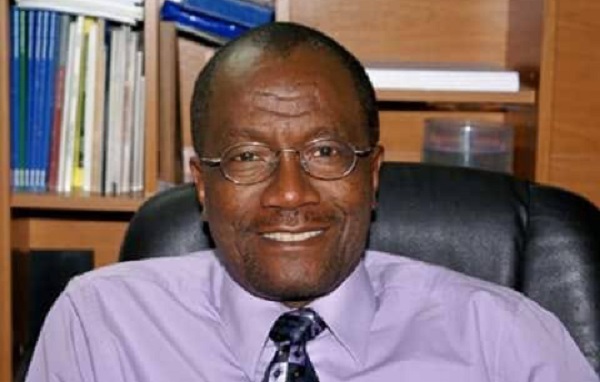If the private sector is not receiving any credit from the commercial banks it is not just the lenders fault but that of the Judiciary, according to the Governor, Kelfala Kallon of the Bank of Sierra Leone (BSL).
Reacting during a panel discussion at the launch of the Integrated National Financing Framework, the Central Bank Governor said the judiciary has had a role in the industry’s massive bad loan problem.
“One of the things that is stifling credit to the private sector is that we have a system that lacks trust and very corrupt, where banks are reluctant to lend to the private sector. Even when they get collateral because somehow the rulings in Court are supporting the debtors rather than the bankers. As a result of that bankers are shy to lend to the private sector because they know that when they lend to the government the government pays”, Governor Kallon said at the event on Tuesday 8th June, 2021, at Radisson Blu Hotel.
“If you have a private sector that people who go to borrow don’t want to pay, when you put their collateral they go and bribe Judges. The BSL never wins a case in this country, you know why because the bank doesn’t bribe” he added.
“The commercial banks tell me that one of the biggest problems they have in giving credit to the private sector is that when they give credit to the private sector, they have a problem of collecting. There is no mechanism to collect those debts.”
One of the key factors affecting businesses ability to access finance is the crowding out of the private credit by short-term, high interest debt issued by the government. The scale of profits and low-risk nature of lending to the government mean that financial institutions in Sierra Leone have little incentive to lend to private actors.
According to the Sierra Leone Development Finance Assessment 94 percent of new lending by the domestic financial sector in 2018 was issued to the public sector, leaving only 6 percent for private borrowers.
“Public debt has dominated domestic credit markets over a number of years, but this dominance was amplified in the last two to three years as government borrowing rose. At the end of August 2018 just 17 percent outstanding credit was held by private sector actors with 63 percent held by the government” the report added.
Governor Kallon’s reaction on the above specified that the issue is not whether the government is borrowing it is what it is borrowing for, and further qualified his opinion by stating that if they are doing it to invest in education, health and infrastructure he is comfortable with that.











